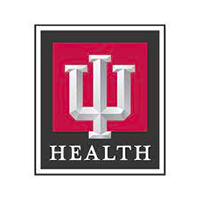





























LPN ER Jobs Overview
If you’re a licensed practical nurse (LPN) who thrives in a challenging, fast-paced work environment, then the emergency department, or “emergency room” (ER), may be right for you. This role requires an abundance of critical thinking skills, along with the ability to communicate effectively and assess trauma. LPN ER jobs involve both direct and indirect patient care, performed under the supervision of RNs.
LPNs (or LVNs — licensed vocational nurses — in California and Texas) typically work in hospital ERs and urgent care clinics. Whether you’re looking for ER LPN jobs or pursuing other types of roles, IntelyCare’s job board provides nationwide listings for full-time, part-time, contract, temporary, and per diem LPN opportunities.
ER LPN Jobs: Education, Certification, and Desirable Skills
The first step is to attain licensure as an LPN, which requires completion of an accredited LPN (or LVN) program and a high school diploma or GED. These programs typically take about a year to complete. Then, you’ll have to take and pass the NCLEX-PN (National Council Licensure Examination for Practical Nurses), and then submit the required documentation to your state board of nursing to get your license.
With your license in hand, you can pursue nursing roles requiring an LPN. ER jobs are particularly challenging and demand stamina, precision, and the ability to follow directions under pressure. Requesting ER or urgent care work for your nursing residency is a great way to gain the experience and confidence for this role. You might also consider pursuing specialty certifications to sharpen your skills in areas such as pharmacology and wound care, showcasing the credentials on your resume.
So, what does it take to be a successful nursing professional in the ER? Since ERs handle everything from the common cold to life-threatening injuries, and shifts can go from slow to hectic in seconds, anyone working in this role must be ready for just about anything at any given time. In addition to the right mix of clinical know-how, LPNs working in the ER must be adept at certain soft skills, such as:
- Effective communication
- Creative problem-solving
- Stress-management
- Critical thinking
- Cultural competence
LPN ER Jobs: Resume and Cover Letter
One thing to consider before you sit down to write your resume and cover letter is that hiring managers don’t always have the time to read them carefully (at first, anyway). Whether they skim through applications or use software to narrow them down by keyword, hiring managers may not pick up on the nuances you’ve spent time carefully crafting. That’s why it’s important to make sure the terminology in your LPN resume — which should be specific for each job application — mirrors the main skills and qualifications in the job description.
This doesn’t mean they won’t read your cover letter from start to finish, or take a closer look at your resume, once yours makes it to the short pile of top candidates. The cover letter, in particular, is your opportunity to make your case — concisely — as to why you’re the best fit for the role. This means not spending valuable space repeating what’s already on your resume, but rather expanding on the intangibles (like “excellent communication skills,” etc.) and highlighting experiences that demonstrate your ability to thrive in a fast-paced ER setting.
Interviewing for LPN Jobs in the ER
Your resume and cover letter form the first impression a prospective employer has of you, but the interview is your chance to make a human connection and really stand apart from the crowd. If you’re pursuing LPN ER jobs, the interviewer will look for the type of energy and composure needed to be successful in this role, given the importance of teamwork, communication, and ability to smoothly adjust to shifting dynamics in the ER.
Your best strategy for acing the interview is to prepare by reviewing questions commonly asked during ER nurse job interviews, as well as questions specific to the role of an LPN. These questions may include:
- How would you handle an angry or violent patient?
- What are some strategies you would use to prioritize care for multiple patients?
- How do you manage pressure and stress on the job?
Not only will you want to answer these questions with knowledge and experience, but also in a way that conveys confidence, awareness, and a clear understanding of the LPN’s role in the ER. You’ll also want to take the opportunity to ask the interviewer any questions you may have about the role, such as:
- Whom would I be reporting to during a typical shift?
- What type of orientation and training do you provide new hires?
- What challenges are unique to your emergency department?
LPN ER Jobs: Salary and Compensation
While the average annual pay for LPNs in the U.S. is $60,790 ($29.23 per hour), compensation varies quite a bit from one state to another. Some of the differences in salary can be attributed to a given state’s cost of living, but some states — Alaska, for example — pay nurses higher average salaries because of recruitment challenges. These states pay the highest salaries and hourly wages for LPNs (or LVNs):
Find the LPN Role That Fits You Best
If you’re pursuing LPN ER jobs, LPN hospital jobs in other departments, or some other specialty or type of facility altogether, we can connect you to opportunities nationwide. Check out America’s top job board for nursing professionals today and find the right job to take your career to the next level.